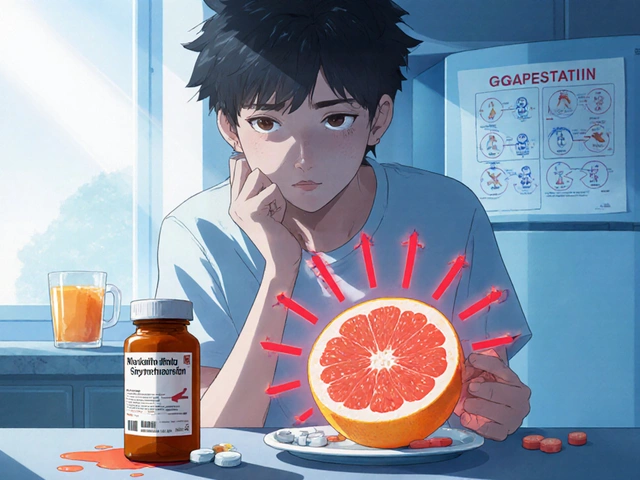Antipsychotic Overdose: Signs, Risks, and What to Do
When someone takes too much of an antipsychotic overdose, a dangerous accumulation of medication used to treat psychosis, schizophrenia, or severe bipolar disorder. Also known as antipsychotic toxicity, it can shut down vital brain functions and requires emergency care. These drugs — like risperidone, olanzapine, quetiapine, or ziprasidone — work by balancing brain chemicals, but too much throws the system into chaos.
What happens during an antipsychotic overdose, a dangerous accumulation of medication used to treat psychosis, schizophrenia, or severe bipolar disorder. Also known as antipsychotic toxicity, it can shut down vital brain functions and requires emergency care.? Your heart rate might spike or drop, your blood pressure goes wild, and you could slip into confusion, seizures, or even coma. Some people develop serotonin syndrome, a rare but dangerous reaction caused by too much serotonin in the brain, often triggered by combining antipsychotics with other meds. Others face neuroleptic malignant syndrome, a life-threatening condition marked by high fever, muscle rigidity, and organ failure. These aren’t theoretical risks — they show up in ERs every week.
Who’s most at risk? People who take these meds daily and accidentally double-dose, those mixing them with alcohol or opioids, or individuals with depression who overdose intentionally. Elderly patients and those with kidney or liver problems are especially vulnerable because their bodies can’t clear the drug fast enough. Even a small extra pill — maybe from a confused elderly parent or a teenager experimenting — can be enough to trigger a crisis.
There’s no home fix. If you suspect an overdose, call emergency services immediately. Don’t wait for symptoms to get worse. Emergency teams will monitor vitals, give activated charcoal if it’s early enough, and use IV fluids or specific antidotes to stabilize the person. Hospitals also watch for abnormal heart rhythms — a silent killer in these cases.
The posts below dig into real-world details: how different antipsychotics compare in overdose risk, what symptoms to watch for, and how doctors treat these emergencies. You’ll find practical breakdowns of drugs like Geodon and Loxitane, and how their side effect profiles change when taken in excess. These aren’t theoretical guides — they’re based on real cases, clinical data, and patient experiences. Whether you’re caring for someone on these meds or just want to understand the dangers, this collection gives you the facts you need to act fast and stay informed.

Olanzapine Overdose: How to Spot Symptoms and Get Emergency Help
Learn how to spot the signs of an Olanzapine overdose, what immediate steps to take, and the medical treatments available. Get prevention tips and resources for help.
Categories
- Medications (90)
- Health and Wellness (47)
- Pharmacy Services (15)
- Chronic Conditions (9)
- Women Health (7)
- Health and Nutrition (5)
- Medical Research (4)
- Mental Health (4)
- Child Health (2)
- Skincare (2)


